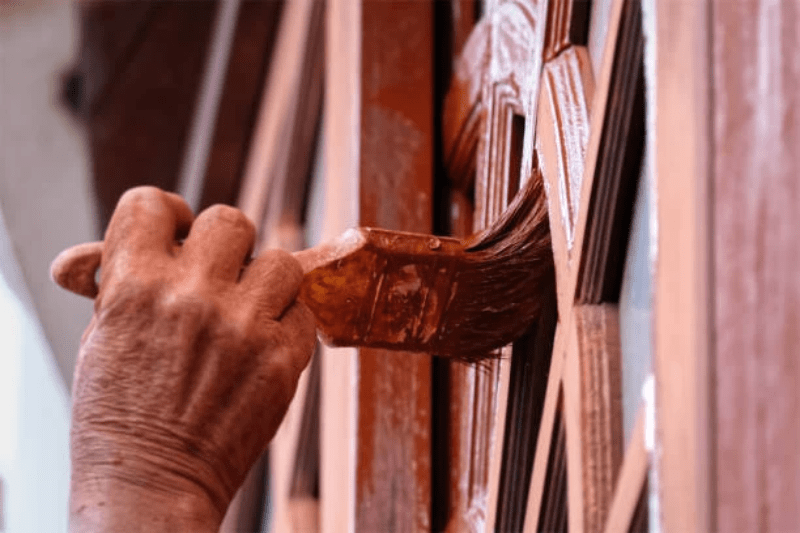The Rusty Truth: How to Permanently Seal Rust with Ease
The Rusty Truth: How to Permanently Seal Rust with Ease

Rust is a common problem that can occur on metal surfaces, causing damage and destruction over time. It's a natural process that occurs when iron or its alloys, such as steel, react with oxygen and moisture in the air. However, with the right tools and techniques, you can prevent rust from forming or stop it from spreading. In this article, we'll explore the world of rust prevention and introduce you to the concept of permanent rust sealer.
Understanding Rust
Before we dive into the world of rust prevention, it's essential to understand what rust is and how it forms. Rust is a type of corrosion that occurs when iron or its alloys react with oxygen and moisture in the air. This reaction causes the metal to break down and form a flaky, reddish-brown substance. Rust can occur on any metal surface, but it's most common on steel and iron.
The Effects of Rust
Rust can cause significant damage to metal surfaces, leading to weakening, cracking, and even complete failure. When rust forms, it can compromise the structural integrity of the metal, making it prone to breaking or cracking. In extreme cases, rust can lead to catastrophic failures, resulting in costly repairs or even accidents.
The Importance of Rust Prevention
Preventing rust is crucial to maintaining the integrity of metal surfaces. Rust prevention methods can be categorized into two main groups: surface treatments and coatings. Surface treatments involve applying a chemical solution to the metal surface to prevent rust from forming. Coatings, on the other hand, involve applying a physical barrier to the metal surface to prevent rust from penetrating.
Permanent Rust Sealers
Permanent rust sealers are a type of coating that provides a physical barrier against rust. These sealers are designed to prevent rust from forming or spreading by creating a protective layer on the metal surface. Permanent rust sealers are available in various forms, including liquids, sprays, and powders.
How Permanent Rust Sealers Work
Permanent rust sealers work by creating a physical barrier on the metal surface. This barrier prevents rust from forming or spreading by blocking the reaction between the metal and oxygen and moisture in the air. Permanent rust sealers can be applied to a variety of metal surfaces, including steel, iron, and aluminum.
Types of Permanent Rust Sealers
There are several types of permanent rust sealers available, each with its unique characteristics and benefits. Some common types of permanent rust sealers include:
1. Silicone-based sealers: These sealers are popular for their ease of application and flexibility. Silicone-based sealers are suitable for use on a variety of metal surfaces, including steel, iron, and aluminum.
2. Polyurethane-based sealers: These sealers are known for their durability and resistance to chemicals. Polyurethane-based sealers are suitable for use on metal surfaces that are exposed to harsh environments.
3. Epoxy-based sealers: These sealers are known for their high strength and resistance to chemicals. Epoxy-based sealers are suitable for use on metal surfaces that require high-strength protection.
Applying Permanent Rust Sealers
Applying permanent rust sealers is a relatively simple process. The first step is to clean the metal surface to remove any dirt, grime, or other contaminants. Next, apply the rust sealer according to the manufacturer's instructions. It's essential to follow the manufacturer's instructions carefully to ensure proper application and adhesion.
Conclusion
Rust is a common problem that can occur on metal surfaces, causing damage and destruction over time. However, with the right tools and techniques, you can prevent rust from forming or stop it from spreading. Permanent rust sealers are a type of coating that provides a physical barrier against rust. By understanding how permanent rust sealers work and applying them correctly, you can protect your metal surfaces from rust and extend their lifespan.
If you want to know more about this topic, then click here: https://en.wikipedia.org/wiki/Rust.
